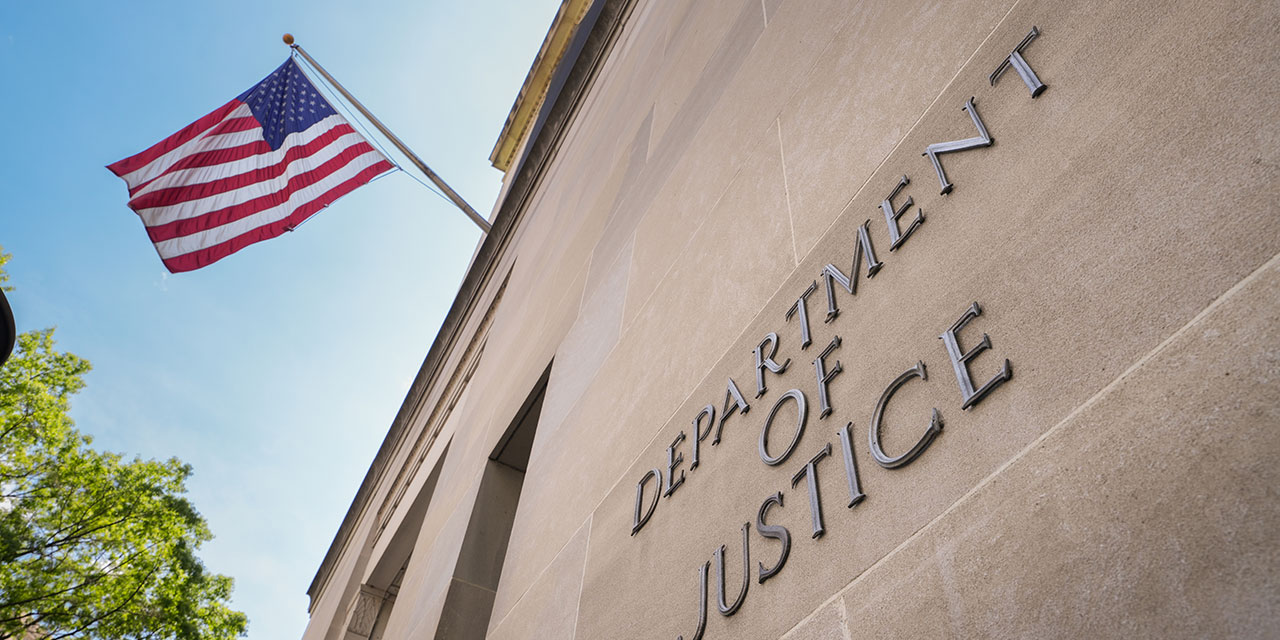
Despite the Trump administration’s efforts to clamp down on DEI programs, unelected officials have kept trying to advance that pernicious grab-bag of racialism and identity politics in violation of the law.
Last year, Hal Goldsmith, a federal prosecutor in St. Louis, indicted two real-estate developers, Sidarth Chakraverty and Victor Alston, on wire-fraud charges for allegedly misrepresenting their eligibility for the city’s Minority Business Enterprise and Women Owned Business Enterprise (M/WBE) program.
Finally, a reason to check your email.
Sign up for our free newsletter today.
The problem? The M/WBE program’s race- and sex-based preferences are unconstitutional—and the city of St. Louis recently suspended the program in light of anti-DEI executive orders and Justice Department guidelines. But even if none of that were the case, neither the facts nor the law would support prosecution.
Luckily, the administration just yesterday reversed course, thanks to the swift intervention of new interim U.S. Attorney Thomas Albus. Nonetheless, the prosecution is an illustration of how far Trump still has to go in shutting down the broader DEI phenomenon in government.
Chakraverty and Alston, who are brothers, developed housing in blighted neighborhoods of St. Louis. The M/WBE program, administered by the St. Louis Development Corporation (SLDC), set participation targets for racial minorities and women in development projects in exchange for eligibility for tax abatements. The SLDC even added a target for Native American contractor participation, though there are no recognized Indian tribes in Missouri.
Goldsmith claimed that the brothers inaccurately reported the participation of minority and female subcontractors to elevate their chances of getting tax abatements. The charges are legally dubious on several grounds.
First, the Supreme Court’s decision in Students for Fair Admissions v. Harvard suggests that conditioning tax benefits on the use of race- and sex-based preferences is unconstitutional. Even if SLDC had determined that Chakraverty and Alston satisfied the program’s requirements, it could not have lawfully awarded them tax abatements on that basis. Thus, the misleading statements that the brothers allegedly made could not have made it easier for them to get the abatements and so cannot be material under federal law. Indeed, in the recent Supreme Court case Kousisis v. United States, Justice Clarence Thomas underscored this very point with respect to the federal government’s Disadvantaged Business Enterprise program.
Second, the federal wire-fraud statute applies only to schemes involving property interests. As the defense has argued, the tax incentives that Chakraverty and Alston sought were not a property interest but rather discretionary regulatory actions by the SLDC. The Supreme Court has held repeatedly that sovereign regulatory decisions and “right to control” theories do not suffice as grounds for wire-fraud charges.
Finally, the facts themselves absolve Chakraverty and Alston of wrongdoing. Precisely to avoid the appearance of illegal quotas, the M/WBE program set “goals” for minority and women participation. The program offered tax abatements to developers who made good-faith efforts to meet these goals, even if they fell short. Chakraverty and Alston did just that, hiring widely from the area, even though they had good reason to believe the programs did not apply to their construction projects—a belief confirmed at least in part by regulators.
Indeed, the M/WBE program’s guidance was obscure, arbitrary, and constantly shifting. Though it claimed to promote the participation of racial minorities, it stopped counting South Asians (like the brothers) as minorities and began setting targets specifically for black subcontractors. Any business would struggle to comply with such vague and ever-changing rules. The program, moreover, was supposed to give developers the chance to correct compliance failures through an administrative process, not face criminal prosecution.
Despite these legal weaknesses, our River City Inspector Javert has pressed on. Earlier this month, before the extensions he himself had requested expired, Goldsmith filed responses to defense motions in the Chakraverty/Alston case. He did so in the first hour of newly appointed interim U.S. Attorney Thomas Albus’s tenure—after more than a month without even a Trump-appointed temporary head in the office—perhaps to avoid having to seek Albus’s approval.
Thankfully, mere hours before this piece went live, Albus filed paperwork to dismiss the charges. But, while this particular oversight has been corrected, it is illustrative of a broader phenomenon.
Through its executive orders and enforcement actions, the Trump administration is bringing corporations and universities to heel for unlawful DEI programs. But this case reveals the far-flung corners in which this noxious ideology still finds allies and the severity of punishment that it can inflict. No longer limited to cringey trainings and discrimination in college admissions, DEI has become a tool that a lone prosecutor can use to ensnare innocent Americans.
That has to stop now.
Photo by J. David Ake/Getty Images
City Journal is a publication of the Manhattan Institute for Policy Research (MI), a leading free-market think tank. Are you interested in supporting the magazine? As a 501(c)(3) nonprofit, donations in support of MI and City Journal are fully tax-deductible as provided by law (EIN #13-2912529).
Source link

















